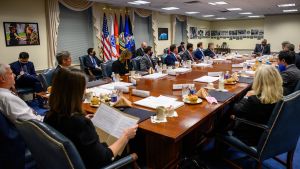Americans Split on Increasing Defense Spending
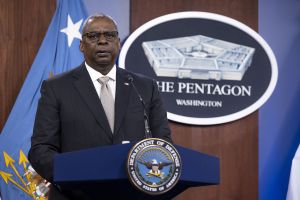
But large majorities support sending additional arms and military supplies to Ukraine, and if needed, Taiwan, Council polling shows.
In his 2023 budget, US President Joe Biden sought a record $813 billion for national defense. The House of Representatives then piled another $45 billion on top of that. The American public, however, is split on increasing defense spending. And there are deep divides between Republicans and Democrats.
Key Findings
- A plurality of Americans (38%) want to keep defense spending about the same with nearly equal numbers wanting to either expand (29%) or cut back (26%).
- A majority of Americans (51%) say that maintaining US military superiority is a very effective way to achieve US foreign policy goals. Only maintaining existing alliances (54%) is higher.
- Just 16 percent say military aid to other countries is a very effective way to achieve US foreign policy goals. Another 59 percent say it is somewhat effective.
- Even so, large majorities support sending additional arms and military supplies to Ukraine (72%) and if needed, to Taiwan (65%).
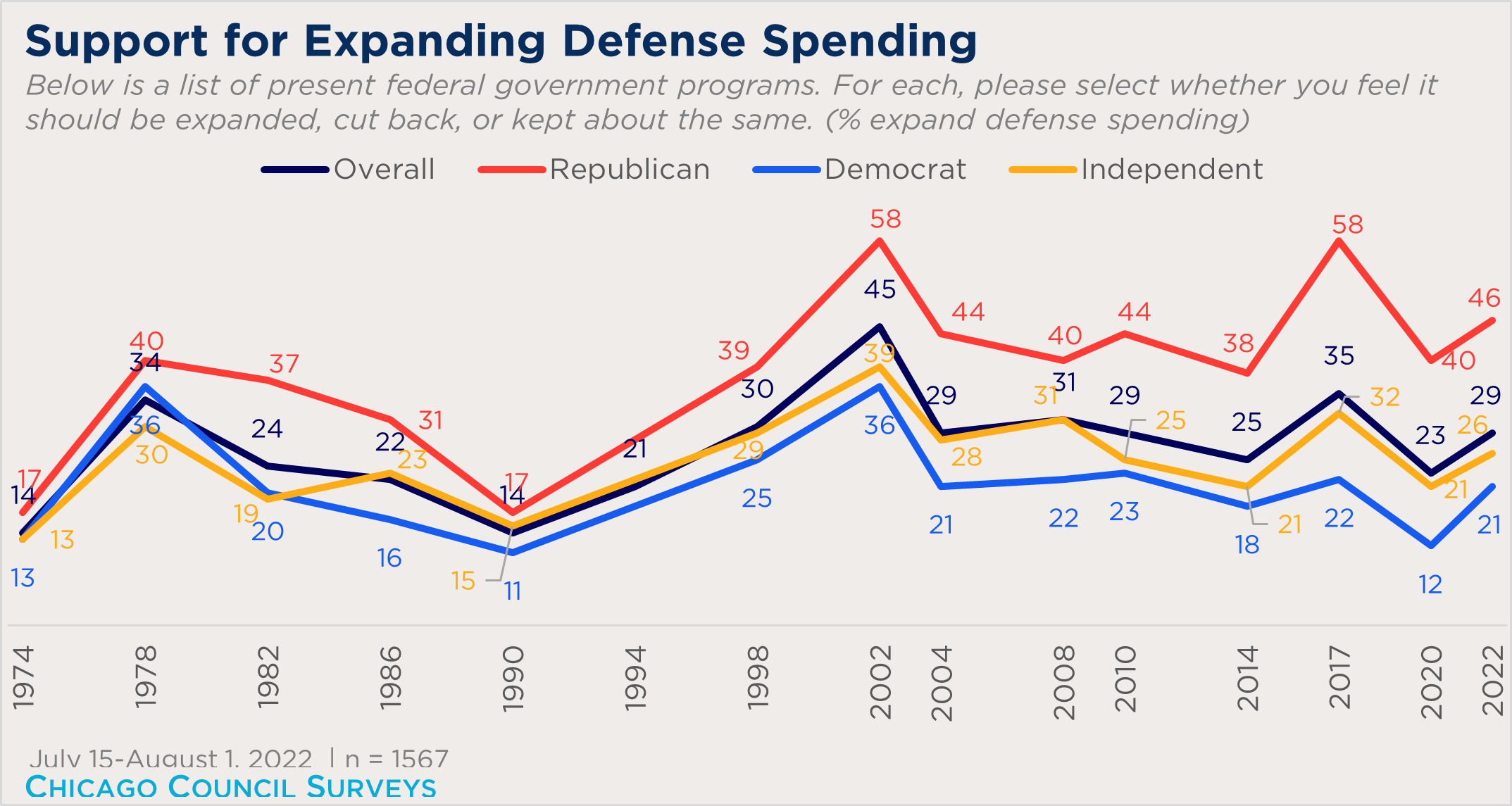
Three in 10 (30%) say ensuring the physical defense of our country is the most important priority for making US foreign policy today. This was the top priority included in the list, and by far the most important priority for self-described Republicans.
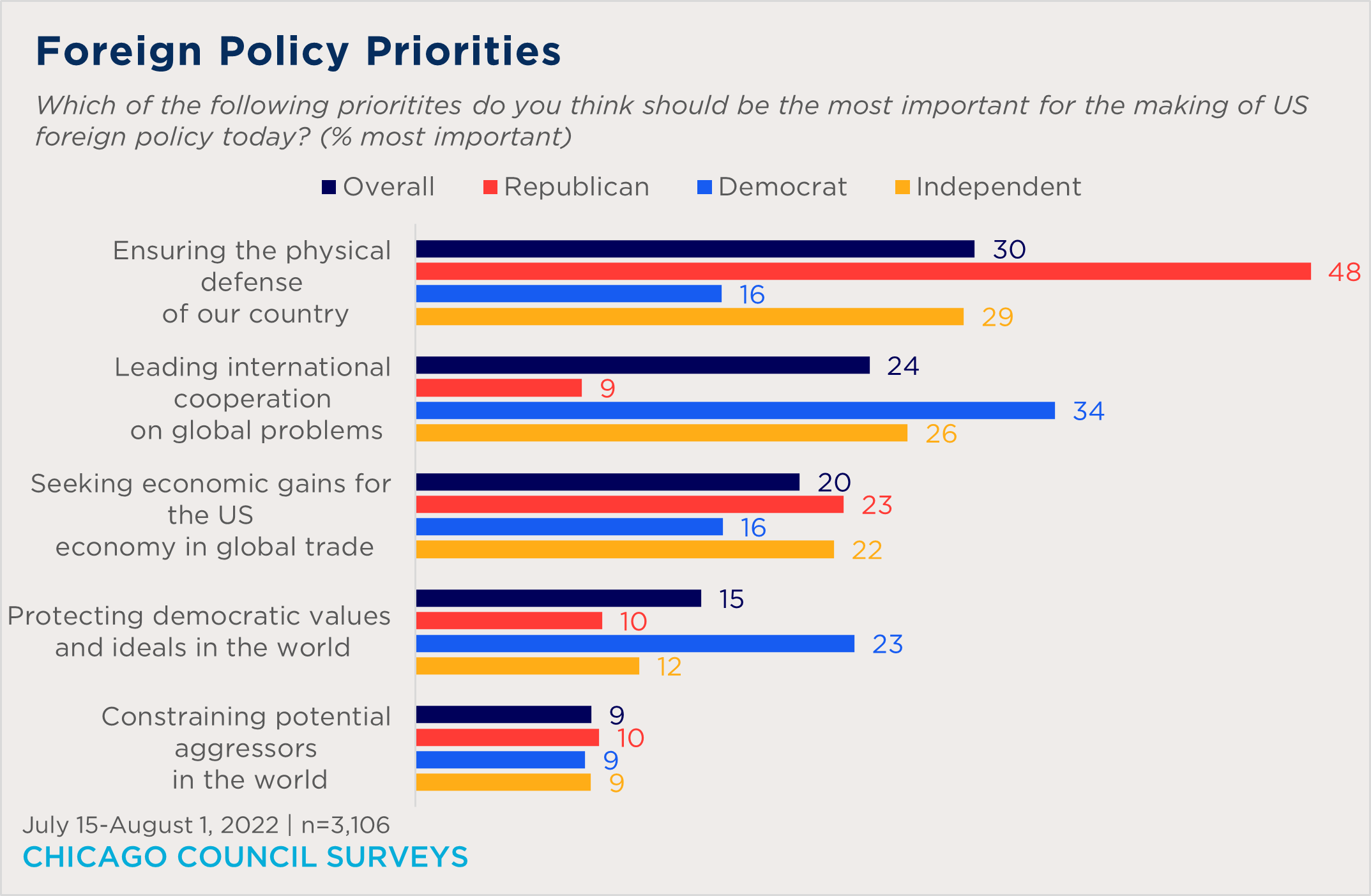
And while 54 percent of Americans say maintaining existing alliances is a very effective foreign policy approach, just 16 percent identify providing military aid to other countries as very effective.
Asked in separate questions, however, nearly three out of every four Americans favor the US sending additional military supplies to Ukraine to help defend itself against Russia (72%). And if China invades Taiwan, two in three Americans favor providing additional military transfers to Taipei (65%).
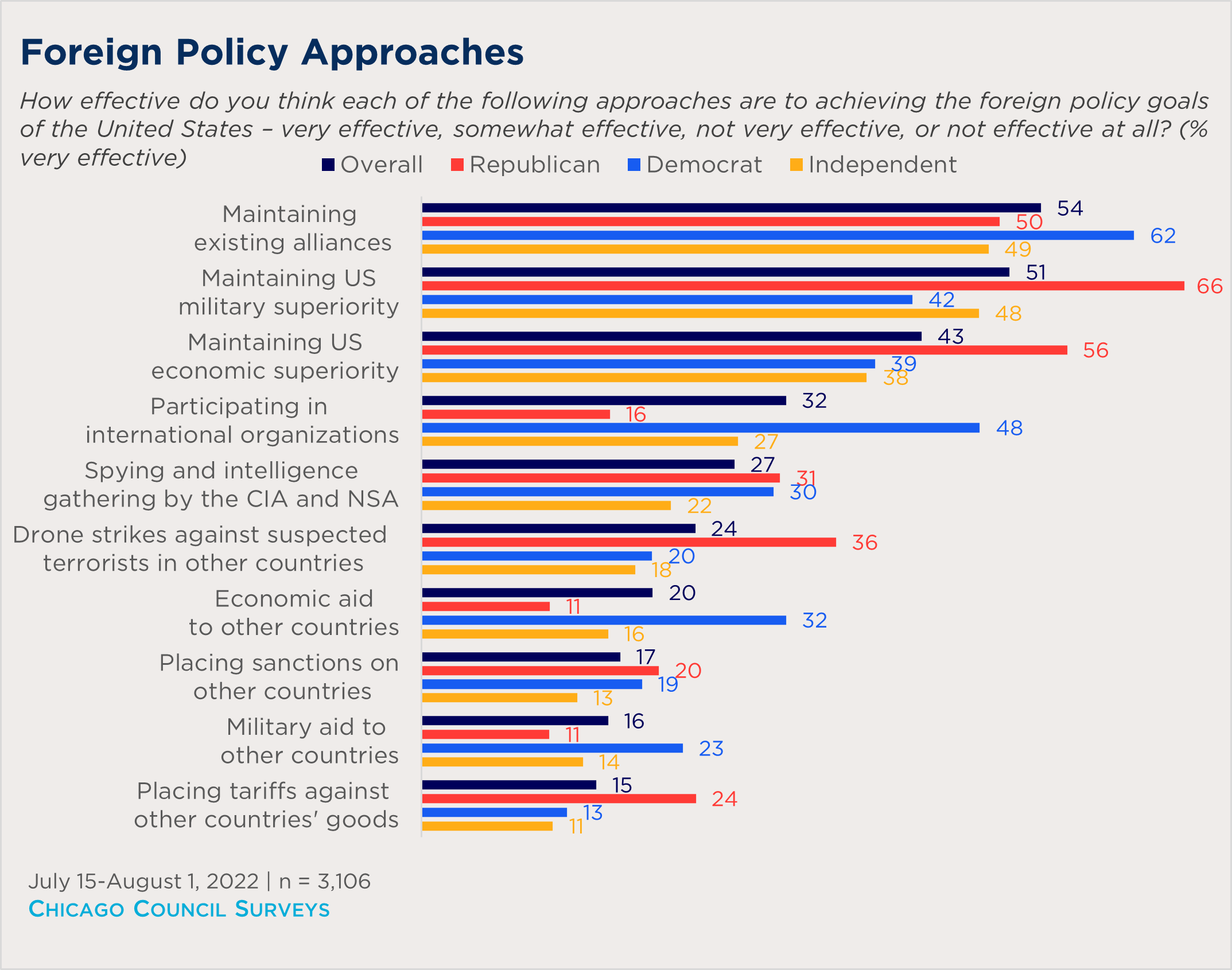


Methodology
This analysis is based on data from the 2022 Chicago Council Survey of the American public on foreign policy, a project of the Lester Crown Center on US Foreign Policy. The 2022 Chicago Council Survey was conducted July 15–August 1, 2022, by Ipsos using its large-scale nationwide online research panel, KnowledgePanel, in both English and Spanish among a weighted national sample of 3,106 adults 18 or older living in all 50 US states and the District of Columbia. The margin of sampling error for the full sample is +/- 1.8 percentage points. The margin of error is higher for partisan subgroups or for partial-sample items.
Partisan identification is based on how respondents answered a standard partisan self-identification question: “Generally speaking, do you think of yourself as a Republican, a Democrat, an Independent, or what?”
The 2022 Chicago Council Survey is made possible by the generous support of the Crown family and the Korea Foundation.

Related Content
 Defense and Security
Defense and Security
Roughly $24 billion in military aid has been authorized for Ukraine since August—dwarfing total US assistance to the country in all previous years.
 Defense and Security
Defense and Security
US aid would not have been nearly as effective without Ukraine’s efforts to improve its military prior to the 2022 Russian invasion.
 Public Opinion
Public Opinion
Overall, Americans prefer to maintain defense spending. But Democrats, younger people, and those with a college education prefer cuts, while Republicans prefer expansion.
